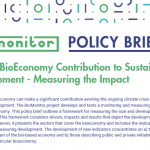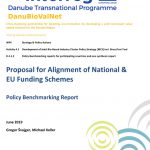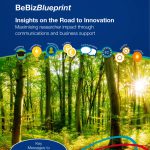STAR4BBI Policy paper on strategy for development of an RCS framework
Standards play a crucial role in supporting the growth of the bio-based products market. They can help to increase market transparency by providing common reference methods and requirements that enable the verification of claims and certification regarding the bio-based content, biodegradability or environmental sustainability of different products. However, inadequate standards can also act as barriers for certain products. So, what are the current EU standards or other related issues that hamper the growth of bio-based products? STAR4BBI (“Developing standards for bio-based industries”) analysed these barriers and proposed actions towards overcoming these.
The STAR4BBI policy paper on strategy for development of an Regulations, Codes and Standards (RCS) framework presents the main topics regarding policy and standardisation of bio-based products as well as various measures to support enabling environment for bio-based industries. The measures covered include: Introduction of a fossil carbon tax for all products; Development of a Sustainability Certification for all products; Establish a favourable regulatory framework for genome editing techniques in the EU; Update the existing Waste Framework Directive – WFD. The report represents the basis for developing a strategy for updating and further developing a supportive and investment-friendly regulatory and standardisation framework.




